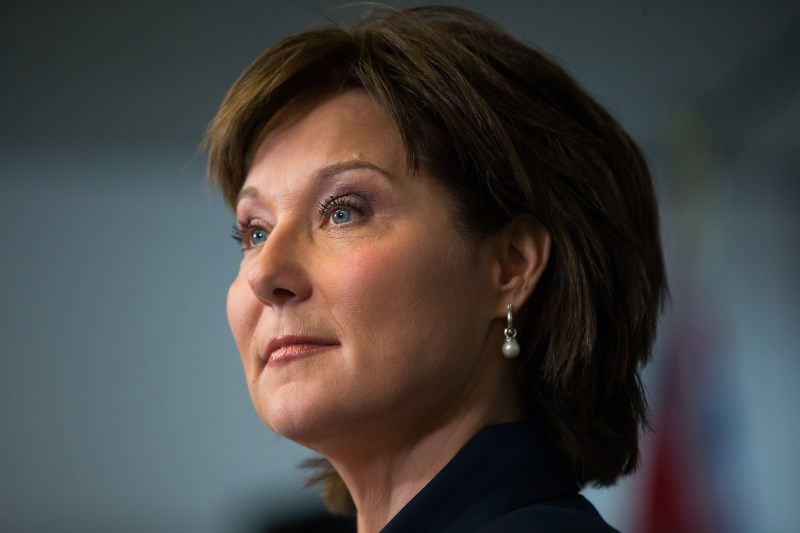Premier Christy Clark is going down fighting, and it’s the best thing she could do for the province. At her news conference on Tuesday, Clark said she would continue to govern, but would recall the legislature this month and “test the confidence” of the house. If NDP Leader John Horgan and Green Party Leader Andrew Weaver want to toss out her government, they will have to do it by defeating the B.C. Liberals in a vote of confidence.
Clark won’t go quietly into the night.
“We all know that Mr. Horgan and Mr. Weaver have made an agreement,” Clark said. “They’ve announced a significant deal, but what’s most important is this basic principle, that if there is going to be a transfer of power in this province — and it certainly seems like there will be — it shouldn’t be done behind closed doors.
“It should happen in public, as constitutional convention tells us it should. It should happen in the people’s house, with 87 members elected by British Columbians to our legislature making that decision.”
The NDP, with its 41 seats, signed a deal this week with the Greens and their three MLAs. The Greens will support a minority government for four years, with a long list of policies and programs to be adopted.
But with her 43 seats, Clark is still the premier. She could drive over to Government House today and ask Lt.-Gov. Judith Guichon to call on Horgan to form a government or she could ask for a new election. She plans to do neither. Instead, she will wait to be defeated before going to Guichon.
Given that Horgan and Weaver have advised the lieutenant-governor of their agreement, Guichon is almost certain to call on Horgan.
The Queen’s representative could do something unexpected. In 1926, Gov. Gen. Lord Julian Byng refused prime minister William Lyon Mackenzie King’s request to call an election. However, Guichon will know that since the resulting constitutional crisis, no governor general has refused a prime minister’s advice.
Calling a new election would be disastrous for everyone, including the lieutenant-governor, who would be seen as rejecting the will of a majority of voters. No one wants an election; Horgan says he can form a government. To call a vote in those circumstance would anger just about every voter in the province.
Meekly stepping down — as if Clark could do anything meekly — would also be a mistake. She would unleash a cottage industry of second-guessing, because no one could be certain of what might have happened in the house.
The vote might seem a waste of time when the outcome is a foregone conclusion, but it’s an important part of building trust in the system. To govern, a party must have the support of a majority of MLAs. Until Clark steps into the house and forces a vote, there is no certainty of what the MLAs will do.
As Clark correctly said, it is the job of those 87 elected members to make the decision, and they must be seen to do it — publicly. It will be a hard experience for someone who fights as fiercely as Clark does.
However, to avoid turmoil down the road, British Columbians need the certainty of knowing that the musty traditions have been followed.
The next four years are going to be filled with controversy, so let’s start off knowing that the New Democrats took power legitimately.



